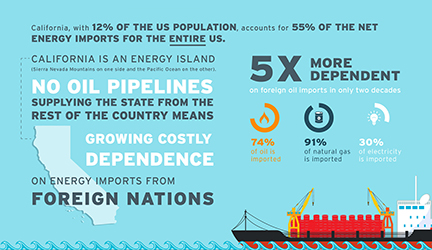ANALYSIS: Vehicle Miles Traveled Tax (VMT)

The State of California is moving closer to charging drivers for every mile they travel. The state says it needs more money for road repairs. Even though California’s gas tax is among the highest in the country and the rate increased in 2019, it still isn’t bringing in enough revenue.
California is the second state to test mileage fees in recent years, joining Oregon, which launched a pilot program of its own several years ago. The California Vehicle Miles Traveled (VMT) Tax is billed as a way for the state to move from its longstanding pump tax to a system where drivers pay based on their mileage. It is also a way for the state to collect taxes from motorists who are buying and driving electric vehicles.
Proponents argue that the state gasoline tax of 52.9 cents per gallon could be replaced with a “miles driven fee” of $0.05 cents or so per mile driven, under proposed state legislation. However, an elimination of the gas tax in exchange for the VMT isn’t guaranteed.
A nationwide VMT proposal has faced opposition in Washington, D.C., where it has been floated as an alternative to the 18.4 cents per gallon gas tax that is currently used to pay for federal infrastructure projects.
But it’s not just a question about money, it’s also a question about fairness.
California also has the highest housing costs in the country. California residents who cannot afford to live close to their work have to drive long distances to get to their place of employment, and as a result, they would have to pay more VMT taxes than those who can afford pricier homes near city centers. In many cases, these commuters driving longer distances are blue collar working families. And those working for minimum wage will be the most impacted. Many hardworking Californians living paycheck to paycheck cannot fill their tanks due to the high cost of fuel. The VMT would be an additional financial burden on them.
This proposal penalizes low-income and working families who drive great distances to work. It is clear that a larger discussion with a broader group of stakeholders is necessary. This debate must take place before the legislature moves forward with this idea.
To find out more information on the VMT tax, visit California Road Charge, sponsored by Caltrans and the California State Transportation Agency (CalSTA).

